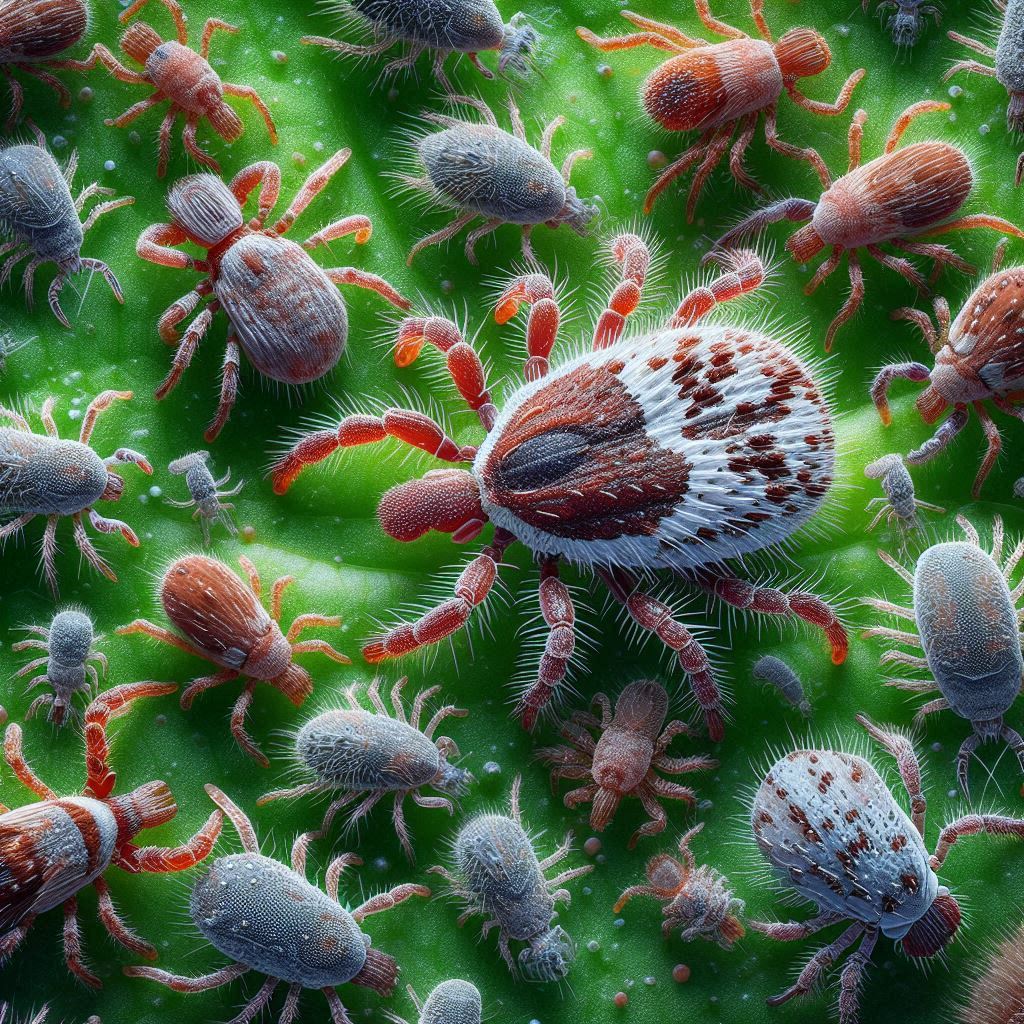Acarophobia
Fear of Tiny Insects
Jump to the Article

Acarophobia, a specific phobia, is an intense and irrational fear of tiny bugs, particularly mites and ticks. This fear can manifest as a persistent dread of infestation, leading to significant anxiety and avoidance behaviors. It's important to note that while many people may experience discomfort or disgust at the sight of small insects, acarophobia is a distinct condition that leads to overwhelming fear and distress.
Delving Deeper into Acarophobia
Acarophobia, a specific phobia, is an intense and irrational fear of tiny bugs, particularly mites and ticks. This fear can manifest as a persistent dread of infestation, leading to significant anxiety and avoidance behaviors. While many people may experience discomfort or disgust at the sight of small insects, individuals with acarophobia often experience overwhelming fear and distress.
Symptoms of Acarophobia
Individuals with acarophobia may experience a range of physical and psychological symptoms, including:
- Intense Fear and Anxiety: The core symptom of acarophobia is an overwhelming fear of tiny bugs. This fear can be triggered by the thought of infestation, the sight of a small insect, or even the sensation of something crawling on the skin.
- Avoidance Behaviors: People with acarophobia often engage in avoidance behaviors to minimize exposure to their fear. This may involve avoiding specific places, such as wooded areas or public transportation, or refusing to touch certain objects.
- Compulsive Checking: Individuals with acarophobia may frequently check their skin, hair, and clothing for signs of infestation. This compulsive behavior can significantly disrupt daily life. Physical Symptoms: Acarophobia can lead to a variety of physical symptoms, including rapid heart rate, sweating, trembling, difficulty breathing, and nausea.
Causes of Acarophobia
The exact causes of acarophobia are not fully understood, but several factors may contribute to its development:
- Direct Traumatic Experience: A negative experience with a bug, such as a painful bite or sting, can trigger the development of acarophobia.
- Observational Learning: Witnessing someone else's fear of bugs can lead to the development of a similar fear.
- Genetic Predisposition: Some individuals may be genetically predisposed to develop phobias, including acarophobia. Psychological Factors: Underlying psychological issues, such as anxiety or obsessive-compulsive disorder, may increase the risk of developing acarophobia. Treatment for Acarophobia
Acarophobia can be effectively treated with therapy. Cognitive-behavioral therapy (CBT) is a common approach that helps individuals to challenge and reframe their irrational thoughts and fears. Exposure therapy, a gradual exposure to the feared stimulus, is another effective treatment. In some cases, medication may be used to manage anxiety symptoms.
If you or someone you know is struggling with acarophobia, it is important to seek professional help. With appropriate treatment, individuals with acarophobia can overcome their fear and live a fulfilling life.
Sources
- "Acarophobia." Vocabulary.com Dictionary, Vocabulary.com, https://www.vocabulary.com/dictionary/acarophobia. Accessed 27 Nov. 2024.
- "Effective Strategies to Overcome Entomophobia: The Fear of Bugs" Bay Area CBT Center, Bayareacbtcenter.com, https://bayareacbtcenter.com/entomophobia/. Accessed 27 Nov. 2024.
- "Entomophobia (Fear of Insects)" Cleveland Clinic, clevelandclinic.org, https://my.clevelandclinic.org/health/diseases/22551-entomophobia-fear-of-insects. Accessed 27 Nov. 2024.
- "Entomophobia (Fear of Insects): Symptoms, Treatments, & How to Cope" Author: Tanya J. Peterson, NCC, DAIS; Medical Reviewer: Benjamin Troy, MD, Choosing Therapy, ChoosingTherapy.com, https://www.choosingtherapy.com/entomophobia/
- "Cognitive behaviour therapy (CBT)" Better Health, betterhealth.vic.gov.au, https://www.betterhealth.vic.gov.au/health/conditionsandtreatments/cognitive-behaviour-therapy. Accessed 27 Nov. 2024.
